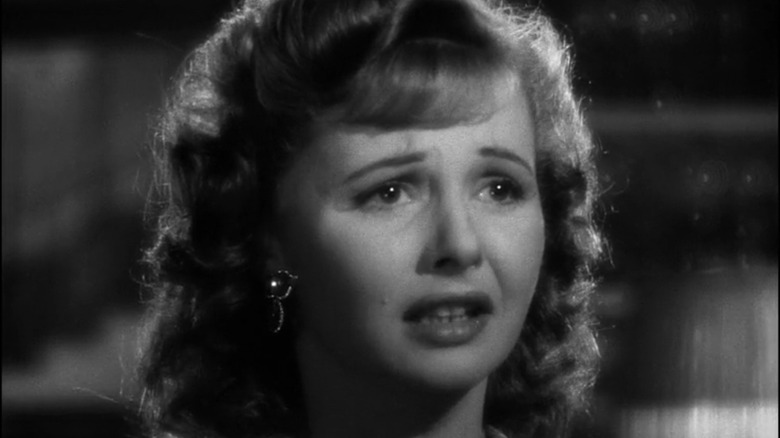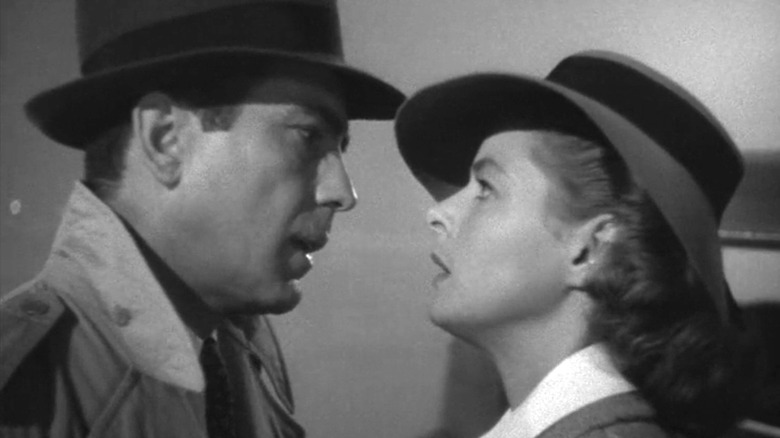Roger Ebert Loved A 1942 Drama That's Often Called The Greatest Movie Of All Time
There are so many reasons why we still consider Roger Ebert one of our greatest film critics. He's possibly the most visually recognizable of them all thanks to his television show "Siskel & Ebert," where he would engage in a dialogue about the new releases of the week with fellow critic Gene Siskel. There's even one episode in which they give their advice on how to be a successful film critic, and while it's certainly helped how I approach my work, I've always been more drawn in by Ebert's words. What made him a great critic was that, even when you shared a diverging opinion, he knew how to make a compelling argument on the page. His sincere enthusiasm in writing about film gave me a deeper appreciation of the form, and often led me to so many great works. Ebert's collective articles about what he considers as "The Great Movies" were love letters to the movies that spoke to him at an emotional level. With that personal criteria in mind, it's no wonder he included 1942's "Casablanca."
The Michael Curtiz-directed romance drama about lost love and unsure futures has endured for over eight decades because it draws you into the plight of its characters. The complicated decisions they have to make in the face of pressing matters outside of their control is why Ebert came to love it so much (via RogerEbert):
"These are not heroes — not except for Paul Heinreid's resistance fighter, who in some ways is the most predictable character in the film. These are realists, pragmatists, survivors [...] At the end of the film, when they rise to heroism, it is so moving because heroism is not in their makeup. Their better nature simply informs them what they must do."
Casablanca was one of Roger Ebert's all-time great movies
At the center of conflict within "Casablanca" is Rick's Café Américain, the busy Moroccan hub where all of these characters converge and alter one another's lives forever. Their minds tell them to do one thing, whether it be Rick (Humphrey Bogart) wanting to run off with his former lover Ilsa (Ingrid Bergman) or Renault (Claude Rains) trying to avoid trouble amid political tensions, but their hearts ultimately push them to do what's right. For Victor (Paul Henreid), his heart and mind are one and the same, which serves as a beacon for everyone else to see the urgency of his resistance.
Ebert has famously talked about movies being empathy machines, and "Casablanca" is one of the greatest examples of this in American cinema. While many will point to Rick and Ilsa's tragic yet satisfying goodbye at the airport as the emotional high point, I've always been drawn to Laszlo's impassioned musical rebellion when a local band of Nazi officers start singing their national anthem. The resistance leader knows he's a high profile target, yet he valiantly steps in the line of fire to galvanize the dispirited patrons into a rousing rendition of "La Marseillaise" because it's the right thing to do. It's a deeply inspiring scene that informs every decision throughout the rest of the film (and a number of the singers were actual refugees from Nazi-occupied Europe during World War II).
"If there is ever a time when they decide that some movies should be spelled with an upper-case M, 'Casablanca' should be voted first on the list of Movies," Ebert wrote. I can't argue with that.
"Casablanca" is currently streaming on HBO Max.

